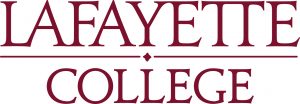Adaptable Game-based, Interactive Learning Environments for STEM Education (AGILE STEM)(Website).
This is a National Science Foundation’s (NSF’s) Research on Emerging Technologies for Teaching and Learning (RETTL) supported project (NSF-2302815) in collaboration with Penn State University and Carnegie Mellon University. The project focuses on model-based systems and production engineering (MBSPE) STEM discipline for (two-year and four-year) undergraduate students and graduate students in online and residential settings.
Machine Learning and Gamification for a personalized-adaptive educational application (Website).
This project is supported by the National Fund for Innovation and Scientific and Technological Development (FONDOCyT for its acronym in Spanish) from the Ministry of Higher Education, Science, and Technology of the Dominican Republic (FONDOCYT 2022-3A1-112), and is in collaboration with the Universidad Nacional Pedro Henríquez Ureña (UNPHU) and the Asociación para la Creatividad, Innovación, Emprendimiento y Networking (A100%) from the Dominican Republic.
- GitHub : lopezbec/AI_Gamification_Python
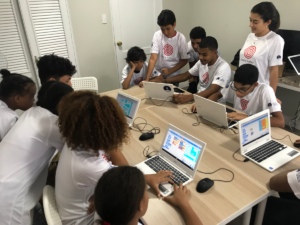
Coding Camp from A100%
Virtual Reality for Improving Spatial Visualization Skills (Website).
Spatial visualization skills are critical for engineering since it is needed to interpret 2D representations of 3D objects (e.g., reading a blueprint). Unfortunately, a high percentage of students have underdeveloped spatial visualization skills. This project seeks to develop an adaptive Virtual Reality (VR) application designed to improve students’ spatial visualization skills. Specifically, this project will implement a Machine Learning model to adapt the content and feedback show to students in an application that allows them to manipulate Computer-Aided Design (CAD) models in VR environments, similar to Intelligent Tutoring Systems.
COVID-19 Multilanguage Tweets Dataset (Website).
The objective of this work is to explore popular discourse about the COVID-19 pandemic and policies implemented to manage it. This work also introduces a dataset of tweets collected from all over the world, in multiple languages, dating back to January 22nd, when the total cases of reported COVID-19 were below 600 worldwide. The insights presented in this work could help inform decision-makers in the face of future pandemics, and the dataset introduced can be used to acquire valuable knowledge to help mitigate the COVID-19 pandemic. The dataset is on:
- GitHub : lopezbec/COVID19_Tweets_Dataset
- KaggleCovid19-tweets-dataset
GeoLocated Coronavirus Tweets from 1/22/2020 to 4/24/2020
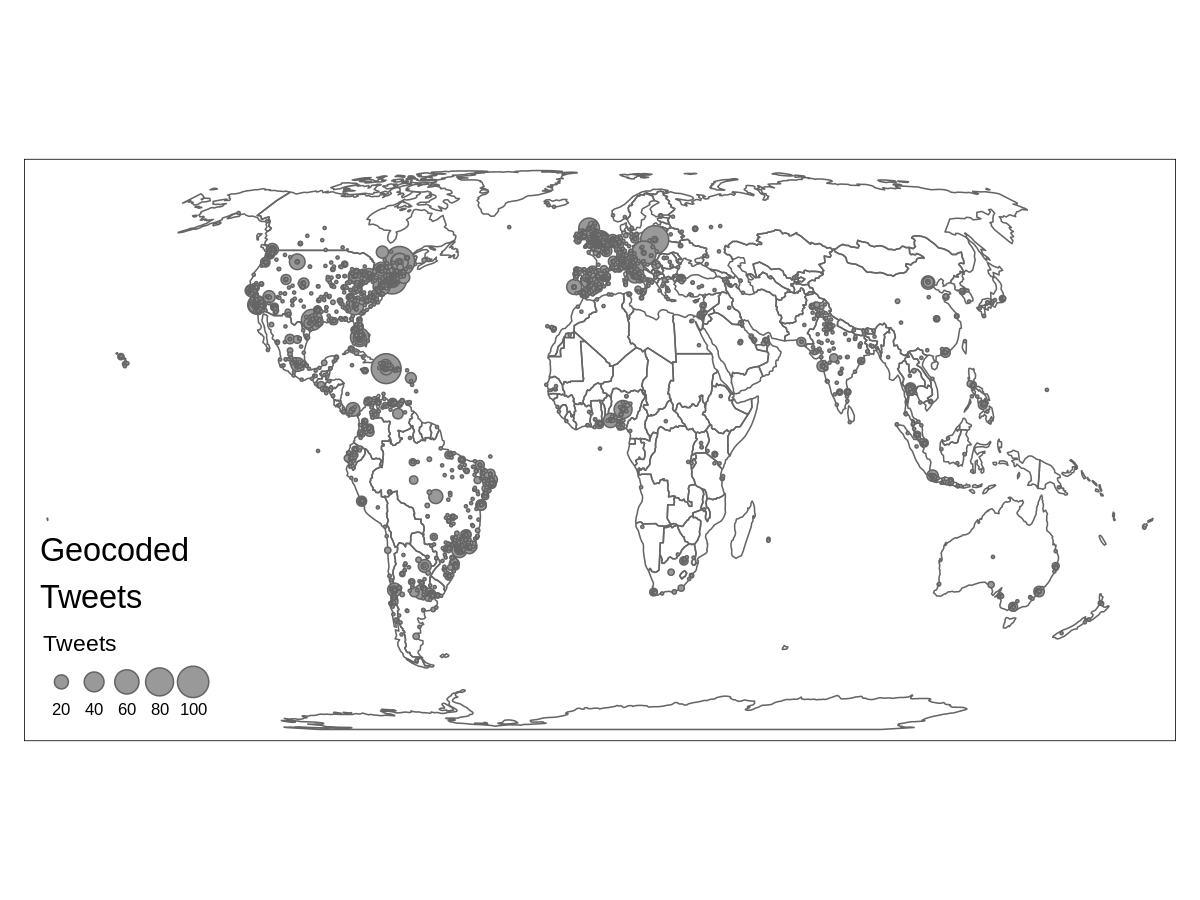
Machine Learning method for real-time accident detection (Website).
Viewer discretion is advised
This is a project is supported by the National Fund for Innovation and Scientific and Technological Development (FONDOCyT for its acronym in Spanish) from the Ministry of Higher Education, Science, and Technology of the Dominican Republic (FONDOCYT 2018-19-3A1-107).
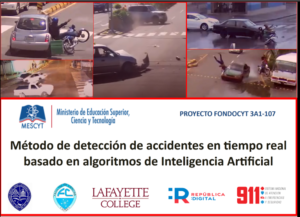
Virtual Reality and Gamification to Promote Physical Activity (Website).
Obesity in the United States and the world is on the rise. This is a major issue as obesity leads to health risks such as heart disease, stroke, and type 2 diabetes. Virtual Reality and Gamification has the potential to motivate user to perform physical activities. This project seeks to create a full-body immersive gaming experience that motivated users to exercise. This application helps emulate a “first-person” experience with the use of VR headset and body tracking technology.
Use of Virtual and Augmented Reality for Pedagogy and Research, Community of Practice (Website)
This community of practice aims to bring together faculty from all the departments and programs that are interested in implementing Virtual and/or Augmented Reality technologies (VR/AR) into their classrooms and/or research agenda. VR/AR have become emerging technologies with great potential to improve students’ engagement since it facilitates immersive and experiential learning. This community will meet to discuss and share ideas and experiences to advance the use of VR/AR for pedagogical and research purposes at Lafayette College and beyond (e.g., LVAIC).
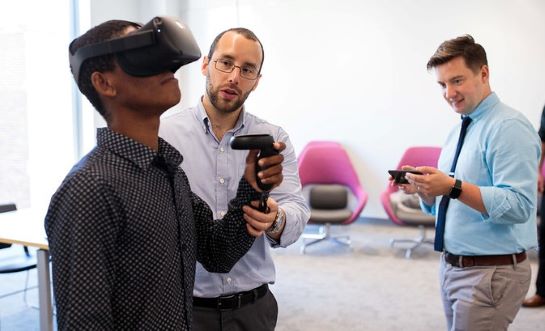
The CLICK approach (Video).
Leveraging Virtual Reality to Connect Learning and Integrate Course Knowledge in Industrial Engineering Curriculum (NSF-DUE Grant#1834465)

Other Projects
- Observation, Inference, and Intervention: An Adaptive Co-robot System that Provides Individually Customized Performance Feedback Based on Students’ Affective States (NSF-NRI Grant #1527148) (video).
- Injuries Aren’t Part of the Game: Developing an injury prevention game to engage parents (Website).
- Gamification and Self-Monitoring of patients for enhanced Wellness Outcomes (News article).
- Integration of Genomic Data for Precision Health Decision Support (Website).
- Design of a Project Management course for Engineers with a flipped classroom format.
